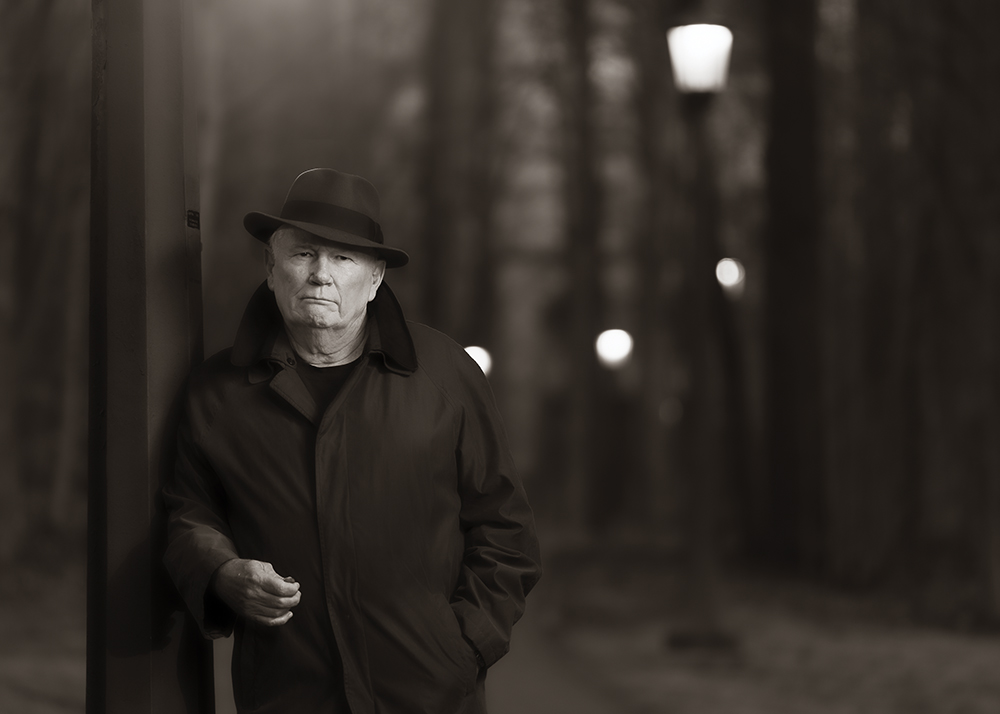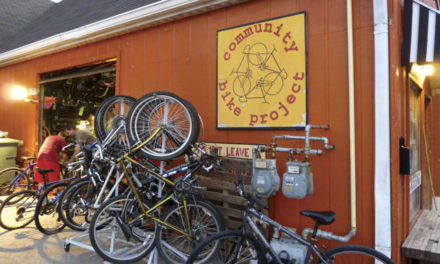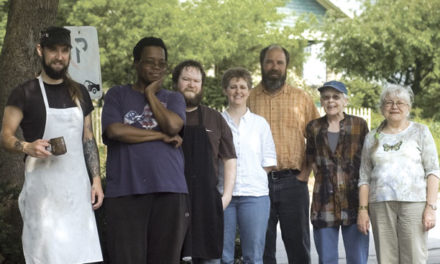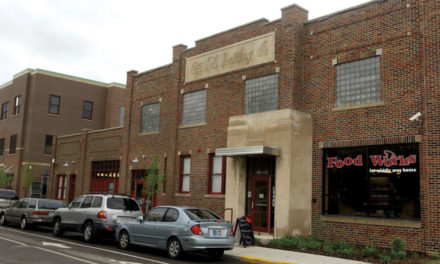
Gene Coyle—Bloomington resident, former IU professor, and retired CIA spy. Photo by Martin Boling
BY PETER DORFMAN
“I’ll let you in on a dirty little secret,” Gene Coyle says, leaning in. “Being a spy is fun.”
A 30-year CIA veteran, Coyle spent 14 of those years in field operations overseas. “I joined at the peak of the Cold War, in 1976,” he explains. “My job was to meet a lot of foreign diplomats and find the ones who were recruitable to spy for the U.S. You’re looking for someone with something lacking in his life that you can fulfill. Usually it’s money. Some don’t like the way their governments are run. The risks are high. I had to convince them that I wasn’t some cowboy who was going to get them killed because they were literally putting their lives in my hands.”
Coyle was a field operative in Cold War Moscow, making brush passes (a technique in which operatives “brush” past one another to make an exchange) and putting down dead drops (where items are exchanged in a secret location without operatives meeting) for foreign agents.
One Eastern European diplomat Coyle recruited genuinely believed information he could provide would lead to better U.S. policy toward his country. “Before he returned to his home country, he gave me a letter,” Coyle says, turning solemn. “He said, ‘If I get killed, I’d like it if you could find a way to get this letter to my son.’ We were both crying. Here was a guy who was willing to put his life on the line to bring change to his country, and he wanted his son to know why.”
Coyle adds, “I also recruited some absolute scumbags. People will spy for every reason you can imagine.”
What was Coyle’s reason for joining the CIA? As a young man with a master’s degree in Eastern European history, he was motivated partly by patriotism, partly by the challenge of the “intellectual chess game” he anticipated. Mostly, Coyle admits, it just sounded like a kick.
Occasionally, the work actually lived up to Hollywood stereotypes. “You do go to a lot of glamorous diplomatic cocktail parties,” he allows. “I looked darn good in my custom-made tuxedo.”
More seriously, he says, “The tension you feel when you meet with agents is real, when you know what the consequences are if you screw up. I had weapons training. On the target range I shot 299 out of 300 with a snub-nosed .38, and 294 with a 9 mm. But I was never in a firefight. In one country they sent me to after 9/11, I did sleep with a gun under my pillow. I never did get the sports car with the hidden machine guns, though.”
By 1990, Coyle and his wife, Jan, who also had joined the CIA, felt ready to come in from the cold. They returned to the U.S. and stayed with the agency as open employees, officers allowed to self-identify publicly as CIA. Coyle worked under the Office of the Director of National Intelligence in a function called community management. That agency was mostly open employees, he recalls. “They had a softball team,” he says.
The CIA academic outreach program allowed open employees to teach, and one of Coyle’s stateside jobs was placing officers in university teaching positions. In 2004, Coyle came to Indiana University, his alma mater—he has bachelor’s and master’s degrees from IU—to teach courses in espionage and CIA history.
Coyle encountered initial objections from professors who felt a CIA veteran on the faculty would tarnish the university’s image. But after his classes got rave reviews he was asked to stay on. He taught for 13 years, until he retired in the spring of 2017.
“I tried to get across to students who were interested in an agency career that, as a field operative, you’re playing God with people’s lives,” he recalls. “If my agent got caught, I’d be sent home. My agent probably would get shot. If you don’t want that on your conscience, you probably should become an analyst, stay in Washington, and read books.”
Former students have stayed in touch. Coyle and his wife recently met with five of them in Washington, D.C. “We never had children of our own, so it’s a little like the old classic movie, Goodbye, Mr. Chips,” Coyle suggests. “They’re the kids we never had.”
Retired in Bloomington, Coyle, 66, writes and self-publishes spy novels. “In my books, the black box technology actually works, and the good guy wins,” he says. “It’s pure fiction.”












